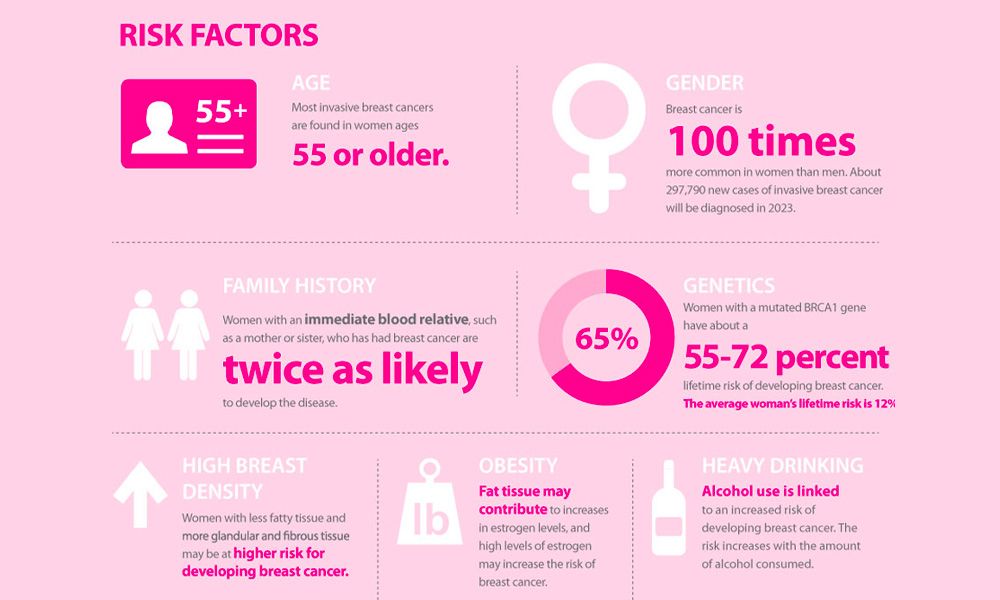With breast cancer being one of the most common forms of cancer in women worldwide, it is important to understand the various risk factors associated with the disease and how to effectively prevent it. By educating yourself on these factors and taking necessary steps for prevention, you can reduce your chances of developing breast cancer and maintain optimal breast health.
Genetic Factors
One of the primary risk factors for breast cancer is a family history of the disease. If you have a close relative, such as a mother, sister, or daughter, who has been diagnosed with breast cancer, you may have an increased risk of developing the disease yourself. In particular, individuals with a BRCA1 or BRCA2 gene mutation are at a significantly higher risk for breast cancer. It is important to speak with your healthcare provider about genetic testing if you have a family history of the disease.
Hormonal Factors
Hormonal factors can also play a significant role in breast cancer risk. Women who start menstruating at an early age or experience menopause at a later age are at a higher risk for developing breast cancer. Additionally, women who have never had children or have had their first child after the age of 30 may have an increased risk. Hormone replacement therapy (HRT) and oral contraceptives can also impact breast cancer risk, so it is important to discuss these factors with your healthcare provider.
Lifestyle Factors
Several lifestyle factors can also affect your risk of developing breast cancer. Maintaining a healthy weight, exercising regularly, and consuming a balanced diet can all help reduce your risk. Limiting alcohol consumption and avoiding smoking are also important factors in breast cancer prevention. It is essential to prioritize self-care and make healthy lifestyle choices to protect your breast health.
Preventive Measures
There are several preventive measures you can take to reduce your risk of developing breast cancer. Regular breast cancer screenings, including mammograms and clinical breast exams, are essential for early detection and treatment. Self-exams can also help you monitor changes in your breast tissue and detect any abnormalities.
Additionally, maintaining a healthy lifestyle by eating a balanced diet, exercising regularly, and avoiding tobacco and excessive alcohol consumption can significantly lower your risk. It is also important to be aware of your family history and discuss any potential risk factors with your healthcare provider.
Conclusion
While there is no guaranteed way to prevent breast cancer, being proactive about your breast health and understanding the common risk factors associated with the disease can help you stay informed and take necessary precautions. By prioritizing prevention through healthy lifestyle choices, regular screenings, and monitoring your breast health, you can reduce your risk of developing breast cancer and maintain optimal well-being.
Remember, early detection is key in the fight against breast cancer, so be sure to schedule regular screenings and consult with your healthcare provider if you have any concerns about your breast health. By taking these steps, you can empower yourself to minimize your risk and make informed decisions about your overall health and well-being.
